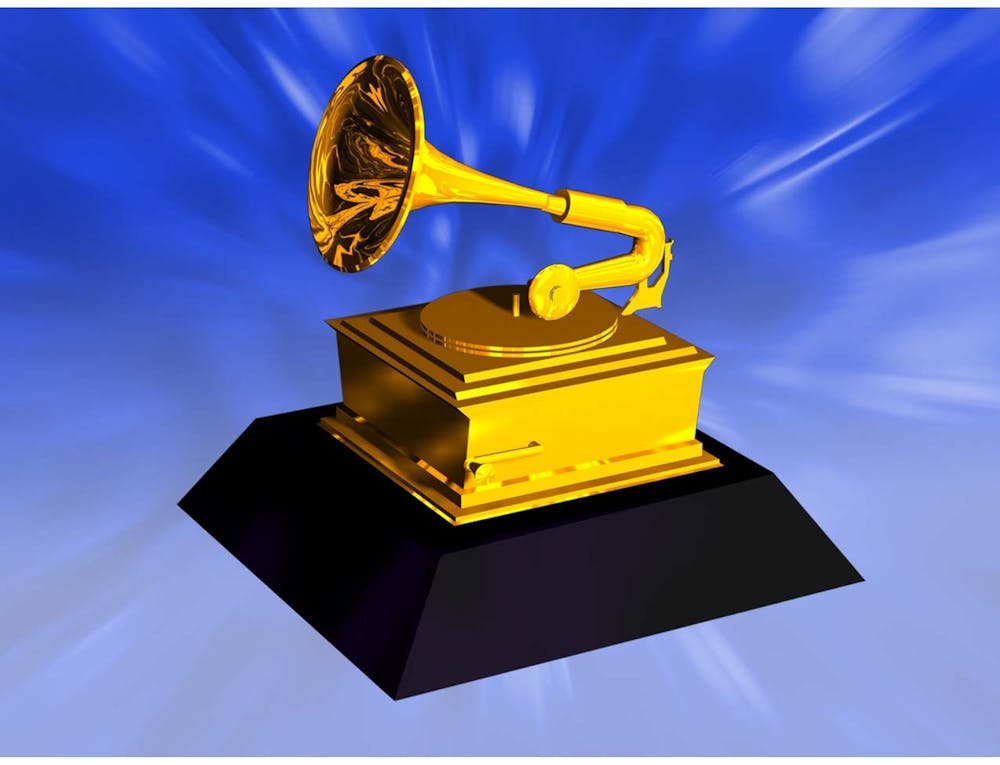Do the members of the band Gorillaz count as celebrities? The group has its own extensive history with members changing, fights occurring and tragic backstories — but it's all fiction. The Gorillaz don't exist, they're cartoons. Yet they have a Grammy award.
Gorillaz is known as a "virtual band," or a music group made up of fictional characters. It's not the first to do this — that title belongs to Alvin and the Chipmunks. Nor is it the only band that has garnered similar attention. Think the band Studio Killers or the vocaloid sensation in Japan that came to rise in Gorillaz' hiatus from 2010 to 2017. Still, Gorillaz is the gold-standard of these virtual bands, and I don't think it ever meant to be.
Behind the scenes, Gorillaz was born out of a disdain for celebrity and a want to make music that had a message. Musician Damon Albarn and comic artist Jamie Hewlett, creators of Gorillaz, had a similar distaste for what was popular in the '90s on MTV, and decided to create something that spoke to their feelings.
"If you watch MTV for too long, it's a bit like hell – there's nothing of substance there," Hewlett said in an interview with Wired. "So we got this idea for a virtual band, something that would be a comment on that."
Instead of the relatively clean and pristine boy bands of the '90s, the pair opted to create a pointedly obtuse and awkward style, both visually and musically. The band members, Murdoc, 2-D, Russel and Noodle were all designed to be strange. The music they made fused all genres together, regularly influenced by rock, pop, rap, jazz and techno. The music was decidedly political as well, not afraid to point fingers. All of this was by design — Gorillaz isn't supposed to fit neatly in a box.
Gorillaz also satirized celebrities. Where other pop stars were showcasing their luxurious mansions on MTV's "Cribs," Gorillaz showcased a dilapidated and decaying studio in an animated segment that included the bassist, Murdoc, urinating on their Grammy.
The group regularly supplied music videos along with their songs, all animated in a multifaceted style that used two dimensional drawings, 3D models and real life actors. These videos are arguably why they became so famous, as they were repeatedly played on the very channel that Albarn and Hewlett criticized: MTV.
But as time went on, this negative feeling toward celebrity softened. Instead of incorporating guests on songs with their own animated character or visual element, so as to not break the animated theme, they now simply animate characters over real world images. The four core members are still animated, but the world they inhabit is not, which I think is the perfect way to describe the satire that was lost here.
Ironically, as their animated world melded with our real world, the subject of the music videos delved deeper into fiction. Instead of an intense focus on satire, Hewlett began to focus on the fictional characters. The videos aren't about criticizing a culture anymore, but instead about exploring the band members.
However, the political bend of their music had never left. From their 2005 song "Dirty Harry" lambasting then-President George Bush for the war in the middle east, or their 2017 song "Let Me Out" lamenting the 2016 election. The music they make is routinely good, and the musical vision of Albarn, who could be considered the "real" musician behind the cartoon characters, is never sacrificed.
But how seriously can I take Gorillaz when, in their fictional world, the bassist Murdoc was arrested and replaced with Ace from "The Powerpuff Girls" for an album? The band can title their songs "Kids With Guns" in an overt presentation of the song's themes, but at the same time they have songs titled "Superfast Jellyfish." It seems like Albarn and Hewlett want their project to be both a farce and high art all at once, and the contradiction never melds into something whole.
It's been more than 20 years since their self-titled debut album and the themes they tackle are completely different from the quaint notion that celebrities shouldn't be idolized. Now, the music is about gun violence, politicians and activism. When the core reason of the inception of the band was to make characters that are so obtuse and pointedly cartoonish, does it make much sense to hide behind them when your message is anything but?




